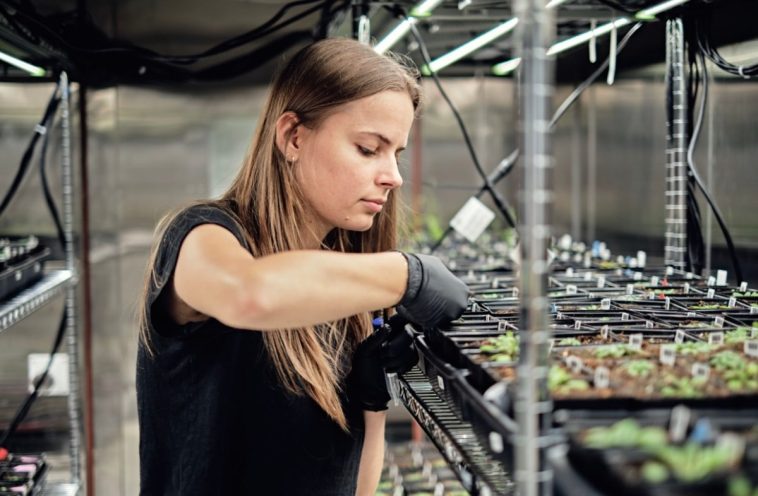Google’s X “moonshot factory” this week announced its latest graduate. Heritable Agriculture is a data- and machine learning-driven startup aiming to improve how crops are grown.
As the firm noted in an announcement post published Tuesday, plants are incredibly efficient and impressive systems. “Plants are solar powered, carbon negative, self-assembling machines that feed on sunlight and water,” Heritable wrote.
Yet agriculture puts a massive strain on the planet and its resources, accounting for around 25% of anthropogenic greenhouse emissions. It’s the planet’s largest consumer of groundwater and can lead to soil erosion and water pollution via pesticides, fertilizers, and other chemicals.
The newly independent startup is approaching these global issues by doing what Google does best: analyzing massive datasets through artificial intelligence and machine learning. Data collection is the easy part, relatively speaking. The hard part is transforming all that data into actionable instructions for growers to help bring the 12,000-year-old industry into the 21st century.
Heritable Architecture’s seeds were planted by founder and CEO, Brad Zamft. The physics PhD served as a program officer and fellow at the Bill & Melinda Gates Foundation before spending a year as the chief scientific officer at a venture-backed startup called TL Biolabs. Eight months later, in late 2018, Zamft joined Google X, quickly becoming the project lead of what would become Heritable.
Image Credits:Heritable Agriculture
“I was given broad purview to work on whatever I wanted, as long as it could scale to a Google-size business,” Zamft tells TechCrunch. “That was the mandate. The idea of how do we get better at optimizing plants stuck with me and it gained traction with the leadership. We did a very good job moving through the gauntlet that is Google X.”
Using machine learning, Heritable analyzes plant genomes to determine combinations that might improve yields, while lowering water consumption and raising carbon storage capacity. The models the company built were tested on thousands of plants, grown to those specifications within a “specialized growth chamber” at X’s Bay Area headquarters. The researchers also conducted field work at sites in California, Nebraska, and Wisconsin.
The company has no plans to explore mutagenesis, a GMO process that utilizes either chemicals or radiation to create crop mutations. Zamft adds, however, that CRISP-fueled gene editing will eventually play a role in making plants “programmable.” For now, however, Heritable is focused on more conventional methods.
“We’re not developing gene-edited plants, and genetic modification is not on our roadmap,” says Zamft. “Gene editing may eventually come, but we’re seeing a huge, unmet need for identifying what to breed and then doing better breeding — crossing a mother and father plant, not using the biotechnology to actually develop the [crop].”
Image Credits:Heritable Agriculture
The executive adds that the team is most immediately focused on commercializing the technology. Zamft did not reveal anything in the way of specific timelines or commercial partners. He did note, however, that Heritable has fittingly raised a seed round, featuring FTW Ventures, Mythos Ventures, and SVG Ventures.
Google is an investor as well, with an undisclosed amount of equity in the young company.
Google laid off dozens from X last January, as part of company-wide cuts. Under the leadership of lab head Astro Teller, the corporate incubator has begun to more aggressively spin off companies like Heritable.
Brian Heater is the Hardware Editor at TechCrunch. He worked for a number of leading tech publications, including Engadget, PCMag, Laptop, and Tech Times, where he served as the Managing Editor. His writing has appeared in Spin, Wired, Playboy, Entertainment Weekly, The Onion, Boing Boing, Publishers Weekly, The Daily Beast and various other publications. He hosts the weekly Boing Boing interview podcast RiYL, has appeared as a regular NPR contributor and shares his Queens apartment with a rabbit named Juniper.
View Bio





GIPHY App Key not set. Please check settings